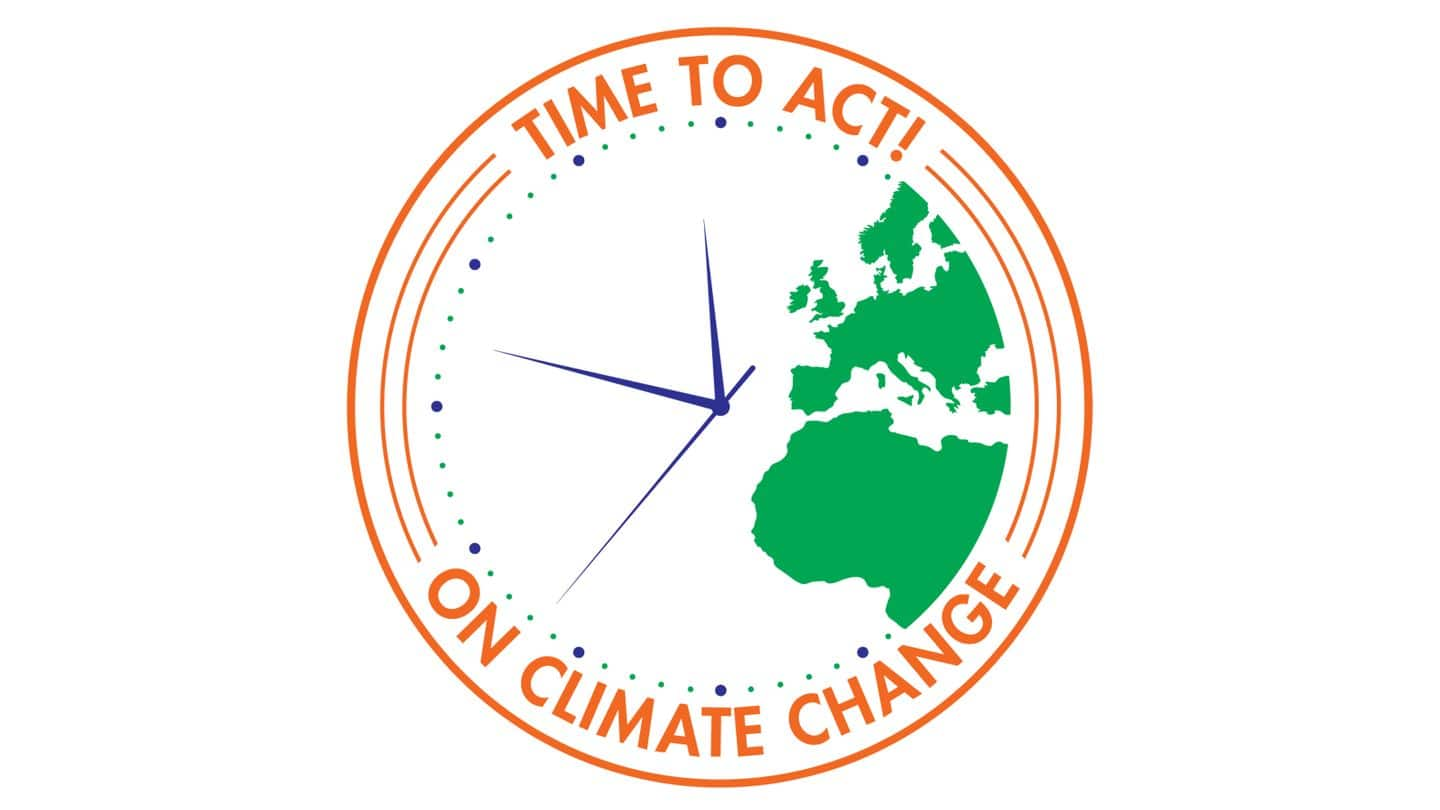
#ClimateChange: The clock is ticking; can we change our ways?
What's the story
About two weeks back, the UN Intergovernmental Panel on Climate Change (IPCC) released a landmark report warning humanity of run-away climate change and cataclysmic consequences in the absence of 'unprecedented' changes to the world economy in the next 10 years. Yet, the report also noted that there's still limited time to change our ways. The question now is, will we embrace it? Here's more.
Temperature
Disastrous consequences await the Earth, courtesy global temperature rise
The report by the IPCC was the first one to be commissioned under the 2015 Paris Agreement which sought to combat climate change by limiting global rise in temperatures to 2 degrees Celsius above pre-industrial levels. However, the report noted that disastrous consequences await the Earth by 2040, if global temperature rise cannot be limited to 1.5 degrees Celsius. And, we're almost two-thirds of the way there.
Emissions
Emissions will have to be cut by 50% by 2030
To limit the global temperature rise to 1.5 degrees Celsius and prevent catastrophe, the world economy would have to be transformed at a speed and scale that has "no documented historic precedent". Notably, by 2030, global greenhouse gas emissions have to be cut by a whopping 45% from 2010 levels. By 2050, greenhouse gas emissions would have to be reduced by 100%.
Catastrophe
In the absence of changes, catastrophe awaits in 2040
The report also noted that if the world failed to meet the aforementioned requirements within stipulated deadlines, climate change could well become beyond human control. It painted a dreary vision of the world in 2040, which would be plagued by worsening food shortages, spiralling wildfires, extreme heat and extreme weather events, climate change-induced exoduses, and extinction of coral-reefs. Such damages could exceed $54 trillion.
Trajectory
Our trajectory points towards doom
Yet, are we even close to decarbonizing the world economy? Quite the contrary. Although clean energy systems are coming into increasing use, the hope that they can stymie rising global temperatures seems to be far-fetched. Even with the Paris Agreement in place, and taking into account global pledges to lower emissions, our current trajectory points towards an unimaginable global temperature rise of 3.4 degrees Celsius.
World economy
Economic growth makes it impossible to decarbonize the economy
To put things into perspective, global emissions will have to be reduced by 100% by mid-century. In the same period, the world economy is set to triple in size i.e. by 2050, we'll have thrice the current levels of production and consumption. Considering that decarbonizing the economy as it stands is nigh impossible, doing it three times over is beyond imaginable, let alone achievable.
BECCS
Could technology offer a way out? Possibly, say scientists
So, what are our options? Well, the IPCC points out that a speculative "negative emissions" technology, dubbed BECCS (bioenergy with carbon capture and storage), could provide a possible get-out-of-jail card. BECCS involves the growing of massive plantations worldwide to absorb carbon dioxide, turning those crops into biofuel, using the biofuel to generate energy, and storing the resultant carbon dioxide emissions underground.
Viability
There's no evidence that BECCS will work
Sound too good to be true? It probably is. For starters, there is no evidence whatsoever that technology like BECCS will work at scale. If we keep on going the way we are, and BECCS doesn't work, we'll be locked into a trajectory with increasing temperatures, and no way out. Even if BECCS works, it'll give rise to a host of other sizeable problems.
Consequences
The consequences of using BECCS are not pleasant
If BECCS does work at scale, it'll require the world to devote colossal tracts of land - equivalent to twice the size of India - for the plantations. In such a scenario, agriculture would take a hit and lead to severe food shortages, and there's a huge possibility of global water crises, soil depletion, and ecological disaster - we might lose 10% of current forest cover, and 7% of extant biodiversity. What's worse? There's solid scientific consensus on the aforementioned possibilities.
Alternative
Yet, there's a third alternative, and it's technically much simpler
With the viability of BECCS and clean energy in question, scientists proposed a third, simpler alternative - reduce consumption. Simply put, if the current practice of pursuing perpetual economic growth is halted and there's a cap on industrial output, our energy needs would come down significantly, thereby allowing us to limit greenhouse gas emissions and the global temperature rise in time to avert crisis.
Good news
A 'post-growth' economy is an achievable feat
The good news is that it is possible - last month, 238 academicians explained to the European Union that a "post-growth" economy was indeed possible, and that rich countries no longer need economic growth to improve people's lives and provide meaningful work. It's all possible right now - all it requires is a more fair distribution of the fruits of already-achieved economic growth.
The challenge
Effecting such change means evolving beyond contemporary capitalism
The difficult part? Effecting such change. For starters, it would require us to think beyond the fold of capitalism, which relies on perpetual growth at the cost of the planet. It would require sweeping systematic changes to the global economy, caps on consumption and production, accompanied by a shift in ethics on part of producers and consumers. Yet, it's our best bet.
To conclude
The cards are on the table; it's time to act
The cards are on the table. With clean energy unlikely to outpace industrial growth, BECCS likely to lead to disaster, sweeping changes in the global economy and global ethics seem to be the most viable way forward. Yet, for politicians, it's the most undesirable as it involves destroying the status quo and building a more sustainable world order. Will they act? I doubt it.